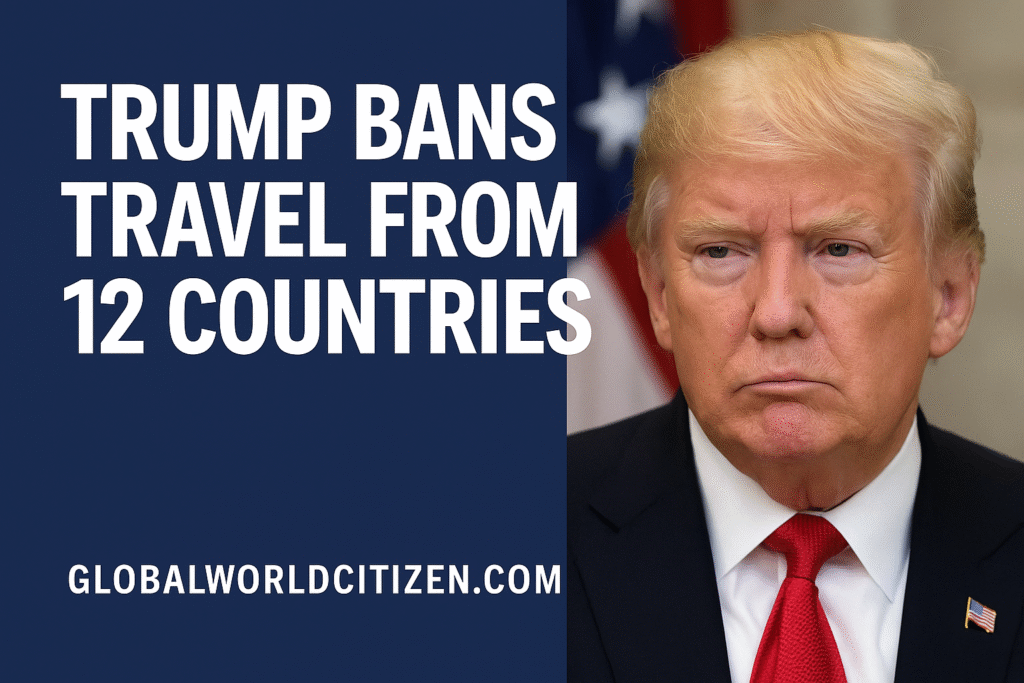Published: June 4, 2025 ✍️ Author: Global World Citizen | Global Politics Desk 🌐 Source: GlobalWorldCitizen.com
In a bold move that’s reigniting global debates over immigration, security, and diplomacy, U.S. President Donald Trump has issued a new international travel ban, officially restricting travelers from 12 countries, citing national security and public safety threats.
 Key Highlights from the Global Travel Ban
Key Highlights from the Global Travel Ban
The comprehensive ban fully suspends travel to the United States from the following countries:
Afghanistan, Myanmar, Chad, Republic of the Congo, Equatorial Guinea, Eritrea, Haiti, Iran, Libya, Somalia, Sudan, and Yemen.Additional partial travel restrictions have been placed on:
Burundi, Cuba, Laos, Sierra Leone, Togo, Turkmenistan, and Venezuela.The proclamation applies to both immigrant and nonimmigrant visas, including student, business, and tourist entries.
Trump directed U.S. agencies to evaluate countries based on their visa vetting and information-sharing practices, citing high visa overstay rates and terrorism threats as primary justifications.
The Department of Homeland Security, State Department, and other Cabinet members are mandated to review the ban every 90 and 180 days, with recommendations on whether to extend, modify, or lift the restrictions.
 Background: Trump’s Second-Term Immigration Agenda
Background: Trump’s Second-Term Immigration Agenda
This sweeping ban echoes the controversial “Muslim Ban” implemented during Trump’s first term in 2017, which targeted nations including Iran, Libya, Syria, Sudan, Yemen, and Somalia. That earlier policy sparked global outrage, was challenged in U.S. courts, and ultimately upheld by the Supreme Court.
During his second term, Trump has intensified his anti-immigration policies, which include:
Attempting to block international student enrollment at top U.S. universities like Harvard.
Escalating mass deportation operations across the country.
Declaring a national emergency at the southern U.S. border.
Revoking thousands of U.S. student visas for foreign nationals.
These moves have drawn harsh criticism from civil rights groups, foreign governments, and international organizations advocating for refugee protection and freedom of movement.
 Global Implications & Reactions
Global Implications & Reactions
Critics argue that the travel ban will:
Damage diplomatic relations between the U.S. and affected countries.
Hinder international education and academic exchange programs.
Further isolate marginalized and vulnerable populations fleeing conflict zones and oppressive regimes.
Proponents, however, defend the decision as a necessary national security measure to protect U.S. borders amid global instability and rising terrorism threats.

